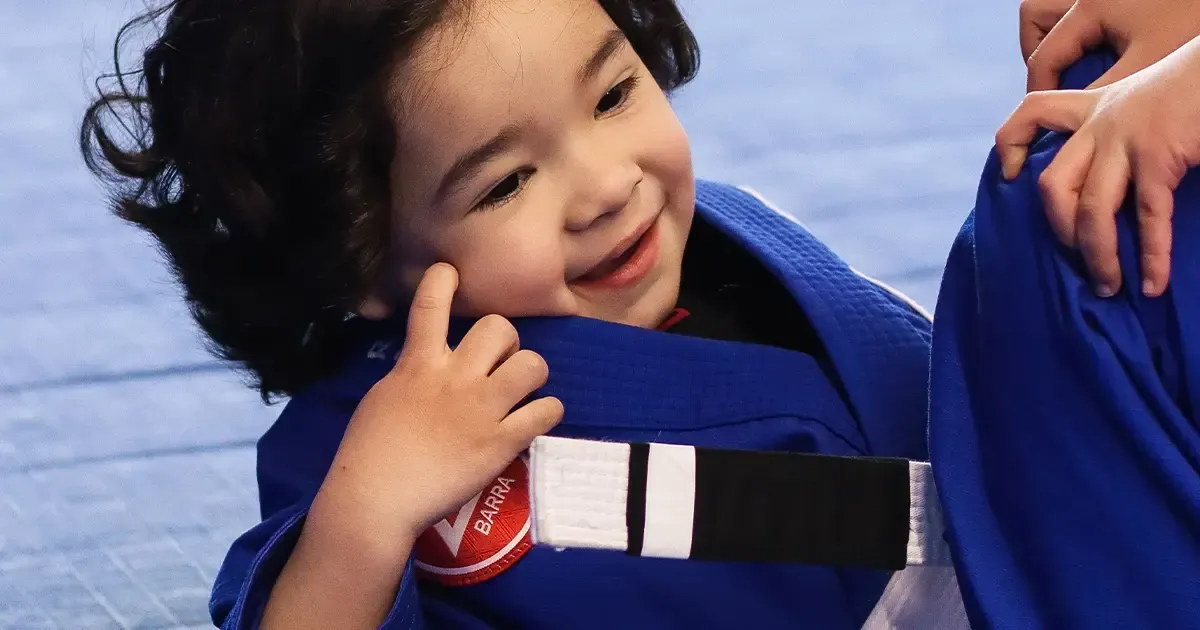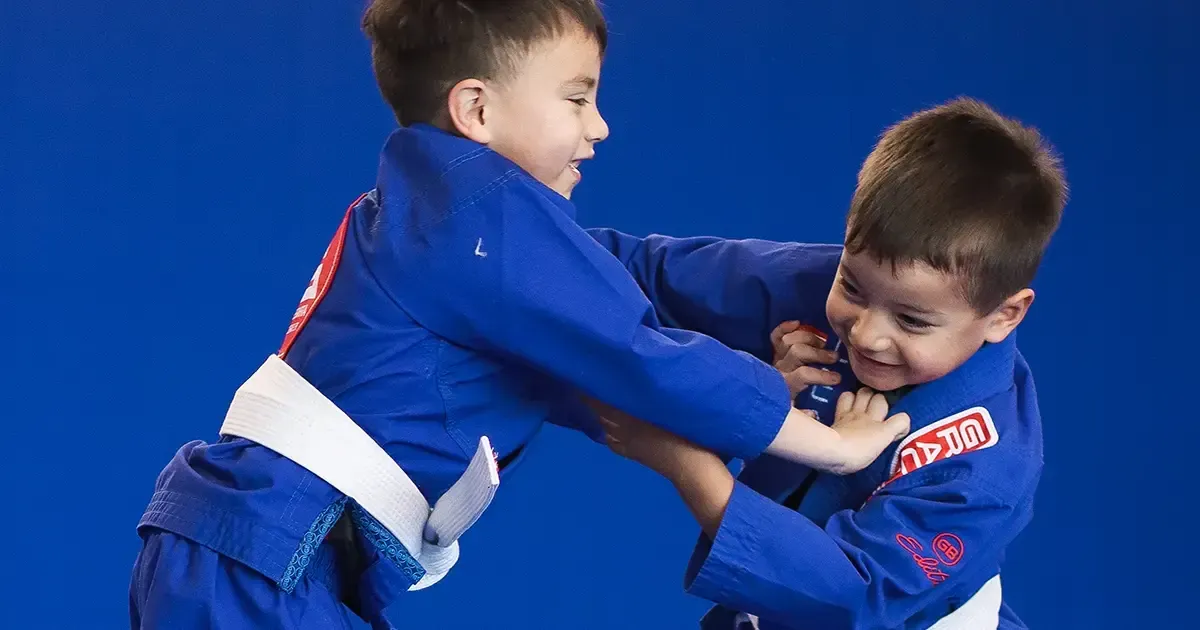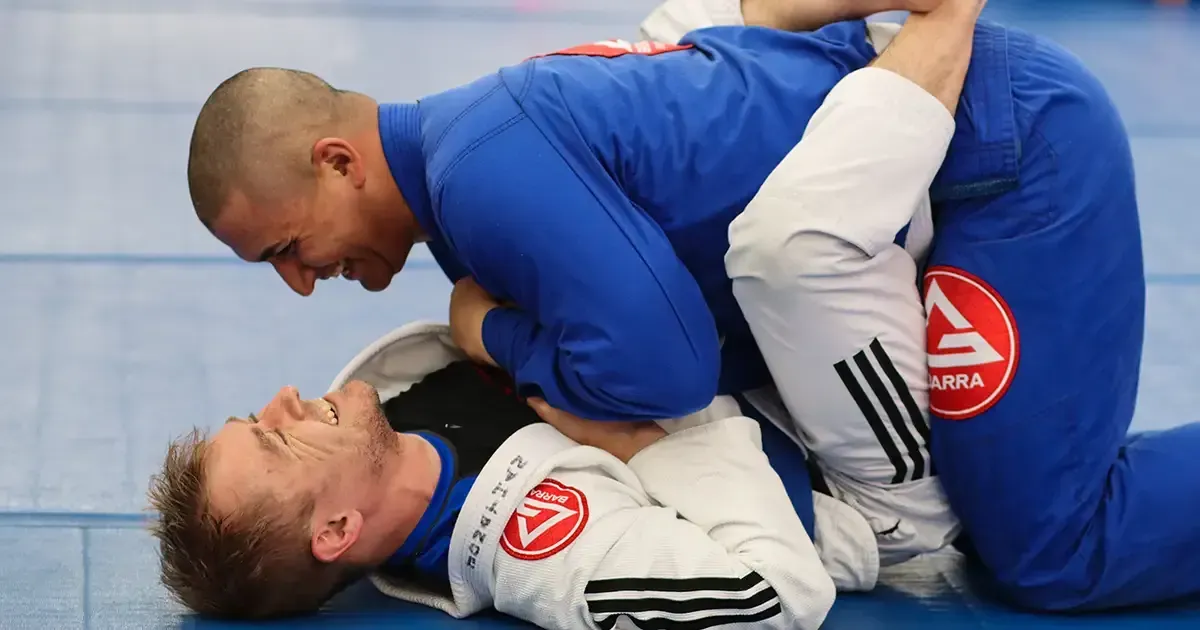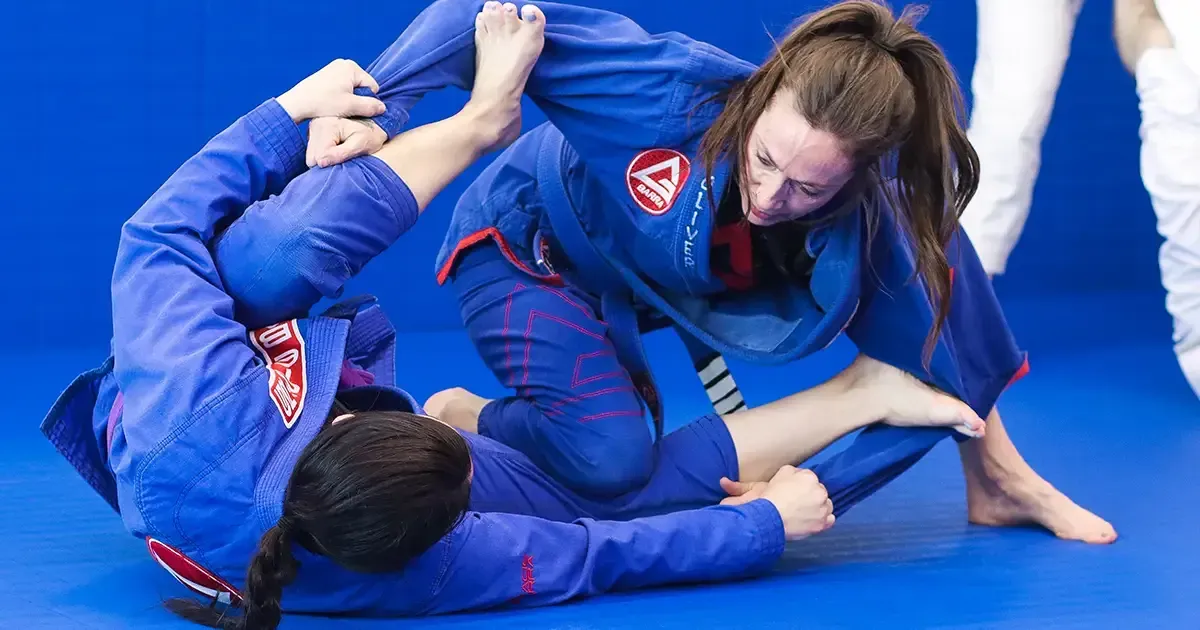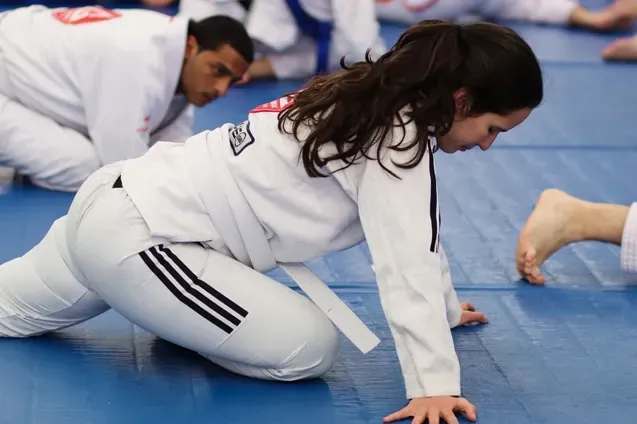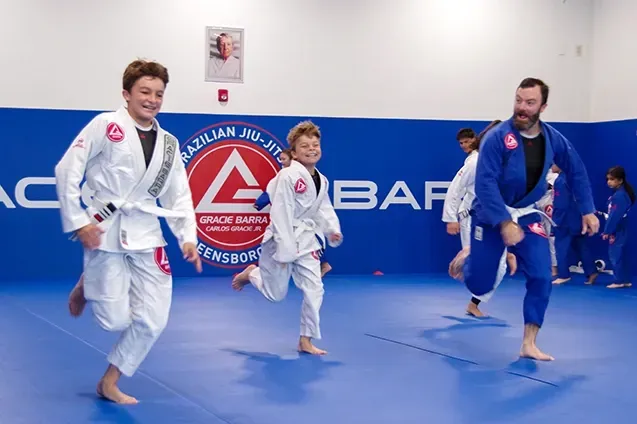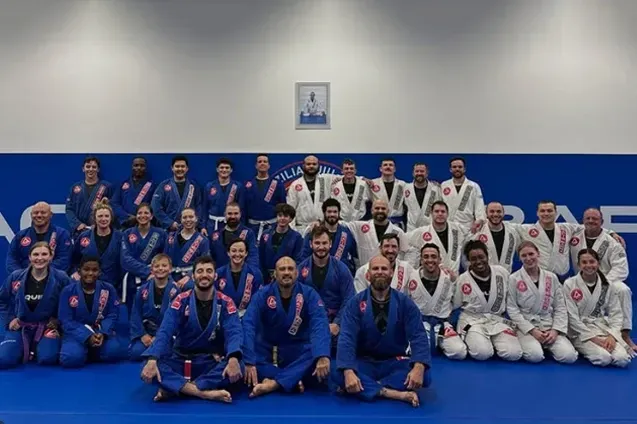By Prof. Lucas Nabuco
•
October 13, 2025
Have you ever hit that wall where stress just follows you home and no amount of rest seems to help? Or maybe you feel like you’re running on empty, juggling work, family, and finding peace of mind is harder each day. My name is Prof. Lucas Nabuco from Gracie Barra Greensboro, and what I have seen over the years is that Jujutsu classes provide something different. When you step on the mat, you leave daily worries at the door and build the kind of resilience that shows up everywhere, at work, at home, and inside. It is incredible how learning BJJ can shift your mindset, revive your energy, and open a door back to feeling like yourself again. Give yourself the chance to experience this change firsthand. Why Jiu-Jitsu Is More Than Just a Workout for Stress Relief At Gracie Barra Greensboro, we often meet people searching for a way to handle stress or simply get a good workout. But what they soon discover is that Jiu-Jitsu offers something much richer. When you walk onto the mat, you’re stepping into a different kind of training, one that not only teaches your body, but also trains your mind and spirit. The movements we practice might start out as ways to break a sweat, but quickly, students notice that each class helps calm their mind and offer a renewed sense of clarity. Building Inner Calm Through Challenge On the mat, stress gets replaced by focus. Suddenly, you are present, learning how to respond rather than react. The process of escaping a tight hold or succeeding in a simple drill becomes a lesson in patience and perseverance. “Some of the most powerful growth I’ve seen happens when students realize that the struggle is part of the lesson,” I often tell my students at Gracie Barra Greensboro. Rather than avoiding discomfort, we encourage our Jiu-Jitsu students to embrace it and transform it into resilience they carry off the mat. Transformative Connections and Community One aspect people rarely expect is the sense of belonging. Every Jiu-Jitsu class is an opportunity to connect with people who are on the same path, supporting each other through the ups and downs. Where else can you find a workout that leaves you laughing with new friends and feeling supported, no matter your day? The friendships built here help carry burdens and relieve the kind of stress isolation can create. More than fitness: You realize it’s not just your muscles getting stronger, but your ability to handle life’s pressure, too. A safe environment: Everyone is welcome, no matter their background or experience level. We help each other grow, together. Real-life impact: The calmness, clarity, and confidence you develop stays with you long after you leave the academy. As I always say, “Jiu-Jitsu isn’t just something you do to get tired; it’s a way you learn to recharge your whole being.” How Consistent Training in BJJ Ignites Energy and Resilience At Gracie Barra Greensboro, we see the transformation that happens when someone decides to show up to Jiu-Jitsu class, week after week. Consistency is not just about repetition. It is about building habits that make your body and mind stronger, more focused, and ready for anything life brings. Students often come in feeling fatigued or overwhelmed by daily routines, but after months of steady training, you will notice they smile more, move with purpose, and bounce back quicker from setbacks both on and off the mat. Energy, Not Just Exhaustion The great thing is, the harder you work on the mat, the more natural energy you gain. The physical exercises, learning to control your breathing, and the friendly encouragement from teammates combine to wake your body up. It is a unique feeling, leaving class physically tired, but somehow refreshed and recharged at the same time. As a coach, I often remind students, “It’s not about being the fastest or strongest. It’s about seeing how, with regular effort, your own limits keep expanding.” Resilience Built Step by Step Every time you face a challenge in a Jiu-Jitsu class, whether it’s a tough drill or learning something new, you practice not giving up. That ability to stay calm and try again is what we call resilience. What I see every day at Gracie Barra Greensboro is students who once hesitated now ask tough partners to train so they can improve. This attitude builds real confidence, not just for the mat, but for work and family life, too. Consistency fuels improvement: With steady practice, you feel stronger, healthier, and more motivated. Supportive community: You are never alone. Teammates and coaches encourage you at every step. Positive mindset: You learn to enjoy the process, celebrate small wins, and keep moving forward, no matter the obstacle. One of my favorites things to share is, “Resilience isn’t something you’re born with. It’s what you create, every time you choose to keep going, even when it feels tough.” Replacing Burnout with Confidence: Real Stories from the Mat Gracie Barra Greensboro is filled with stories of transformation. What I see on the mat every week is people walking in burdened by long days, work stress, or feeling disconnected. Slowly, with each Jiu Jitsu class, something starts to shift. You see a parent who came in exhausted now showing a spark in their eyes as they help a newer student, or a shy teenager who once avoided eye contact now leading the warmup for the group. Moments of Breakthrough Often, the real magic happens when students realize they are capable of much more than they thought. Whether it is mastering a new movement or simply persevering through a tough round, each small victory creates a sense of pride that builds week after week. One of my students once told me, “Before Jiu-Jitsu, I struggled to get out of bed. Now I look forward to every class, it’s the bright spot in my day.” Lessons That Last Beyond the Mat What happens next is even more inspiring. The same confidence and problem-solving you discover at Gracie Barra Greensboro starts to show up in daily life. Students speak up at work, feel stronger for their families, and approach challenges with a new sense of calm. As your posture and mindset change, you will notice stress is replaced by hope, and burnout by genuine excitement. Building confidence step by step: Every small achievement on the mat fuels bigger changes outside the academy. Support to grow: Coaches and teammates celebrate your progress, even on your toughest days. Real improvement: The transformation is not just physical, but emotional and mental. Jiu-Jitsu gives you the tools to rewrite your story. Confidence isn’t just feeling strong, but believing in yourself when challenges come. Here at Gracie Barra Greensboro, I get to witness that change every single day. If you are dealing with stress, feeling tired, or just looking for a fresh start, remember, you are not alone on this path. Here at Gracie Barra Greensboro, I have seen Jiu-Jitsu help people from every walk of life grow stronger, boost their energy, and rediscover real confidence. Each step on the mat is a step toward feeling your best both inside and out. If you have been thinking about starting, come visit us at Gracie Barra Greensboro for a free class. I would be glad to welcome you on the mat and show you what Jiu-Jitsu can do for your life. BOOK A FREE TRIAL CLASS HERE! FAQ – Frequently Asked Questions About Jiu-Jitsu Classes at Gracie Barra Greensboro Do I need to be in shape or have experience to start Jiu-Jitsu? Not at all! We always tell our new students that everyone starts as a beginner, and you don’t need any prior experience or fitness level. Our classes are welcoming and adapted for all ages and backgrounds. You are invited to try a free class to see how it feels. Will training Jiu-Jitsu help me manage my stress and tiredness? Absolutely. You might be surprised to learn how quickly regular classes help melt away daily stress. Many students tell us they leave each session feeling refreshed and energized. The best way to find out is to join us for a free trial and feel the difference yourself. Is Jiu-Jitsu safe for someone who’s never done martial arts before? Safety comes first at Gracie Barra Greensboro. We focus on teaching the basics step by step and encourage a friendly, supportive environment. We welcome you to visit and experience how we keep classes safe and enjoyable for every student. What if I’m worried about injuries or my age? We always encourage students to go at their own pace and communicate with our instructors about any concerns. Whether you’re young or more seasoned, Jiu-Jitsu can be practiced safely and adjusted for your abilities. Come try a free class and let us help you get started comfortably. How does Jiu-Jitsu help build confidence and resilience? On the mat, you’ll encounter challenges and solve them with support from our team. Step by step, you’ll notice yourself standing taller and approaching life’s tough moments with more calm and confidence. Seeing it in action during a free class is the best way to understand the transformation. What should I bring to my first free class at Gracie Barra Greensboro? Just bring comfortable workout clothes, your curiosity, and an open mind. We provide everything else you need. Book a free trial class, come meet our team, and see how Jiu-Jitsu can be a great fit for you or your family! Book a FREE trial cla ss


